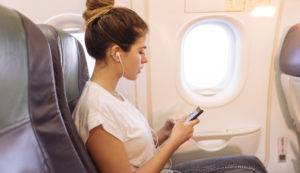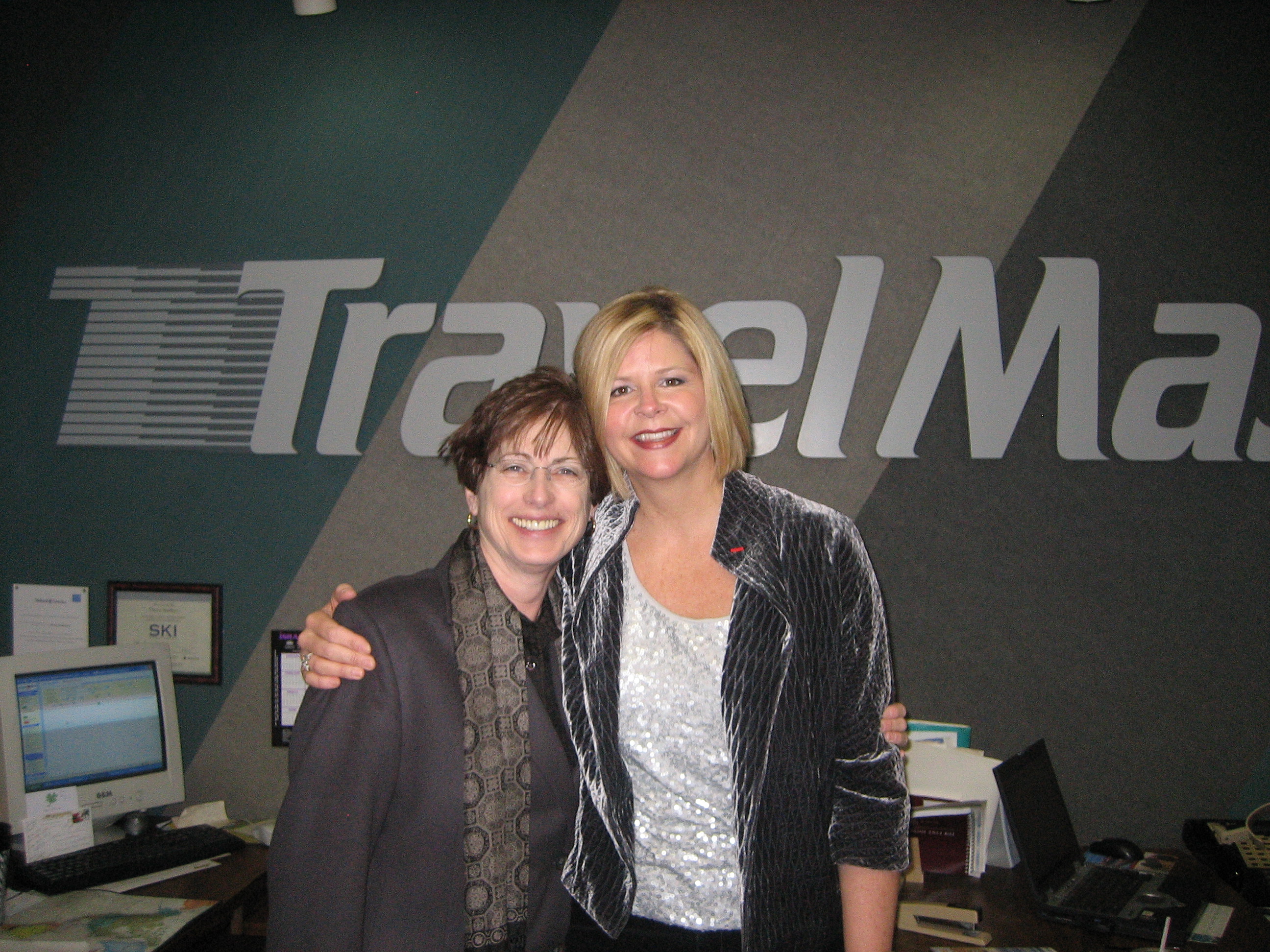
Algorithms can only go so far.
Over the last decade, the rise of online travel agencies has made it easier than ever to book a trip. Their appeal is obvious: Expedia, Priceline, and other do-it-yourself booking sites have swapped out living, breathing travel agents — who possess such human failings as incomplete knowledge, opaque allegiances, and inconvenient business hours — for something more algorithmically determined, along with the illusion of total choice and the very best deals.
And yet what’s old is becoming new again.
Last month, travel marketing firm MMGY Global released its annual Portrait of American Travelers survey. The survey found that 32% of travelers now visit direct provider websites (i.e., American Airlines or Hilton Hotels) when making reservations — up 6% from 2015, and virtually even with the percentage of travelers who turn to online travel agencies when booking travel. Meanwhile, travelers are increasingly browsing booking sites during the planning phase of a vacation before turning to brand.com sites to actually book reservations.
It’s helpful to think of vacation prep like a funnel: at the top, there’s the planning phase, when the traveler envisions where she might like to go, and then seeks advice, ratings, and deals. At the bottom, there’s the booking stage, where she locks in a specific flight, accommodations, and itinerary. This part used to be the ambit of online travel agencies, but increasingly, these sites are moving up the funnel and serving a different function.
“Suppliers have much more control over inventory, and travelers have learned they can get more points and amenities by booking with the supplier directly,” says Clayton Reid, president and CEO of MMGY. On the other hand, more travelers are “using online travel agencies as showrooms, or ways to go look at aggregated content to help with decision-making, not booking.”
This is the inverse of how travel planning has typically worked on the Internet, but it’s actually in keeping with a trend that has changed the industry over the last couple of years: travelers want more curated results along with the best deals and packages, and they’re showing that they will sacrifice a bit of control that do-it-yourself sites offer. Although there are about half the number of travel agents working in the U.S. as there were in 2000, according to the Bureau of Labor Statistics, this new paradigm has created a space, once more, for old-fashioned human intervention. According to MMGY’s Reid, 28% of millennials surveyed said they had consulted a traditional travel agent in the last 12 months — higher than any other age segment — and 30% said they plan to do so in the next two years.
It’s worth asking if we lose something by relying solely on technology to plan a vacation. “Having a travel agent can optimize a trip for you,” says Paul English, the co-founder of a new travel app called Lola. Planning a trip shouldn’t be a stressful experience. “If the travel agent has expertise and knows your preferences well, they can cut down your options to the best two or three. It saves people time.”
Lola is one example of what travel planning in the future may look like. The app, which is currently in limited-release, is intuitively easy to use, and supplements technological innovation and data with responsive customer service. To begin, you simply send a text about what kind of trip you’re planning. It can be vague or specific, because it’s just a conversation starter: on the other end is a travel consultant, equipped with experience, data, and your stated preferences to help plan your trip.
English is also the co-founder and former chief technology officer of booking site Kayak, which he sold to Priceline for $1.8 billion in 2012. While there, he frequently manned the customer service hotline. “I realized that when people are spending a lot of money on something, they take comfort in talking directly to a person before making their booking,” he says.
English developed Lola as a chat app because people increasingly view their phones as messaging devices. “The DIY sites don’t work that well on mobile,” he adds. “They typically return hundreds of results, and it’s just too much data. People get analysis paralysis.”
Travel agents are gaining ground in the luxury market, as well, where DIY booking made fewer in-roads in the first place. “For the luxury community, the travel market has continued to grow and prosper,” says Misty Belles, managing director of public relations at Virtuoso, a luxury travel planning network. “We’re seeing the pendulum swing back toward using an advisor because of people who’ve had a mishap with [online travel agencies]. They want a human being to guide them.”
Virtuoso works with nearly 12,000 travel advisors in about 400 agencies around the world, who specialize in “helping to create travel itineraries you can’t find online or plan yourself” — language aimed directly at the DIY booking sites that have become so popular in the last decade. “Our advisors are very collaborative to make sure you get what you want and what you need,” Belles says.
Departure Lounge in Austin, Texas, is one of the agencies partnered with Virtuoso. Its founder, Keith Waldon, spent 16 years as a senior executive at the luxury travel network, before making a decidedly old-fashioned career move: opening a brick-and-mortar travel agency on a busy downtown corner. If an app like Lola is meeting the customers where they are, Departure Lounge is seeking to attract customers by reinventing an old idea.
“What’s happened in the last twenty-five years is travel companies have disappeared from the streets of cities,” Waldon explains. “Because of online travel sites, the brick-and-mortar travel agencies that have stayed in business pretty much moved to invisible spaces: office towers or out-of-the-way locations with lower rent. They sent workforce home to get overhead costs down and short-term profitability up. But in the process, it made the industry invisible.”
Waldon interviewed more than 200 Austinites about what kind of travel agency they’d like to work with today. They wanted something high-tech, interactive, fun; a place they could bring family and friends. “They were missing something in the equation of travel planning that made them feel special,” Waldon says.
He had a novel idea: what about an upscale coffee and wine bar that happens to double as a travel agency? Patrons are invited to hang out, partake of travel-themed bites and wines, and peruse the array of large touch-screens advertising destinations and itineraries. The approach is decidedly no-pressure: the wait staff are trained to explain Departure Lounge’s offerings, and then, if a customer decides to speak with a travel agent, Departure Lounge sets an appointment with one of the independent advisors it works with, so selected to match up with a customer’s personality and travel preferences.
“Our advisors have specializations in types of travel and different destinations,” Waldon explains. “We have a biking trip specialist on the team, ski specialists, a spa specialist, family travel, continental, region and country specialists, food and wine and philanthropic specialists.”
Waldon feels that the old travel agency model should have changed many years ago. “No one wants to go during the day and sit in front of a desk and look at a brochure and talk to someone behind a computer,” he says. But there’s still much to be gained by interacting with an expert who can leverage connections to find deals and create the perfect trip for you.
“Whenever there is a face-to-face meeting, there’s an 83% closure rate,” he says. “When [booking] just by voice or email, it drops down to 40-something percent. It becomes personal: you build a rapport and trust, and you believe in that person and their abilities. When they deliver on that, you really have a strong bond. Which you can’t do with your keyboard at 2 a.m.”
From Fortune Magazine

